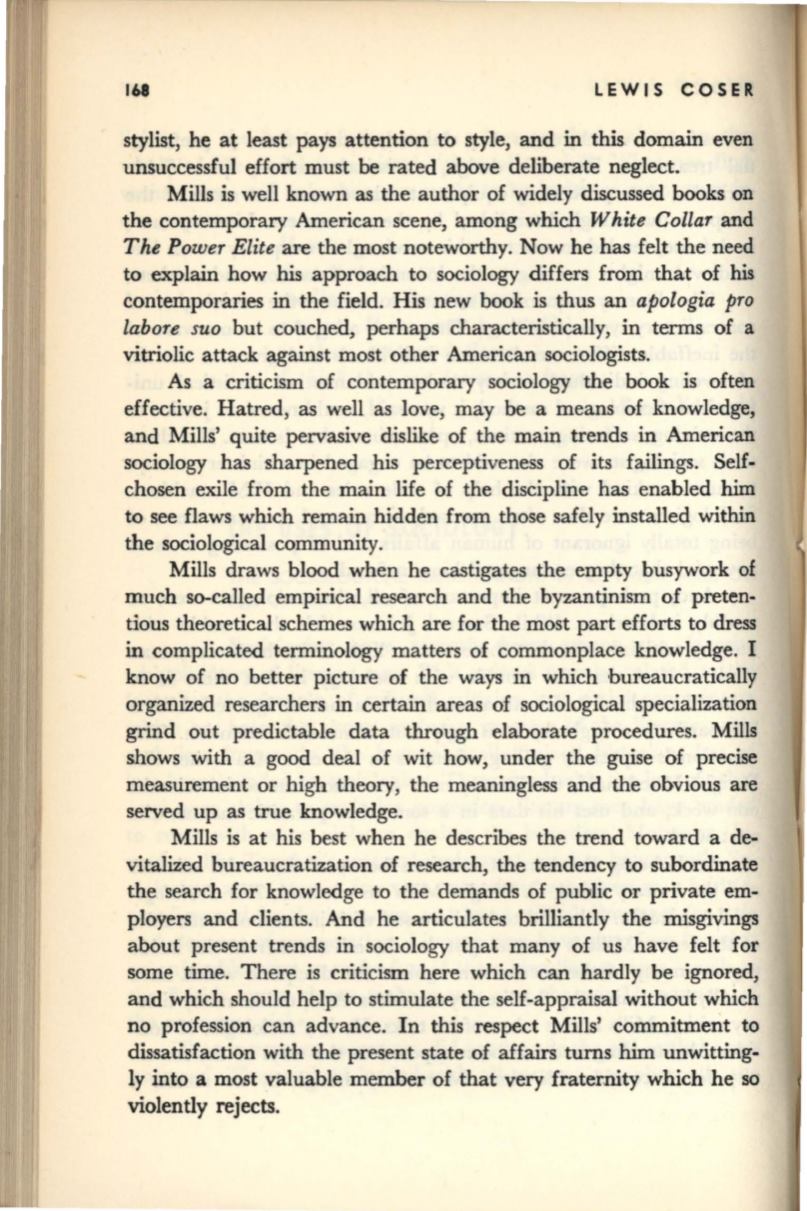
161
LEWIS COSER
stylist, he at least pays attention to style, and in this domain even
unsuccessful effort must
be
rated above deliberate neglect.
Mills is well known as the author of widely discussed books on
the contemporary American scene, among which
White Collar
and
The Power Elite
are the most noteworthy. Now he has felt the need
to explain how his approach to sociology differs from that of his
contemporaries in the field. His new book is thus an
apologia pro
labore suo
but couched, perhaps characteristically, in terms of a
vitriolic attack against most other American sociologists.
As a criticism of contemporary sociology the book is often
effective. Hatred, as well as love, may
be
a means of knowledge,
and Mills' quite pervasive dislike of the main trends in American
sociology has sharpened his perceptiveness of its failings. Self–
chosen exile from the main life of the discipline has enabled
him
to
see flaws which remain hidden from those safely installed within
the sociological community.
Mills draws blood when he castigates the empty busywork of
much so-called empirical research and the byzantinism of preten–
tious theoretical schemes which are for the most part efforts to dress
in complicated terminology matters of commonplace knowledge. I
know of no better picture of the ways in which bureaucratically
organized researchers in certain areas of sociological specialization
grind out predictable data through elaborate procedures. Mills
shows with a good deal of wit how, under the guise of precise
measurement or high theory, the meaningless and the obvious are
served up as true knowledge.
Mills is at his best when he describes the trend toward a de–
vitalized bureaucratization of research, the tendency to subordinate
the search for knowledge to the demands of public or private em–
ployers and clients. And he articulates brilliantly the misgivings
about present trends in sociology that many of us have felt for
some time. There is criticism here which can hardly be ignored,
and which should help to stimulate the self-appraisal without which
no profession can advance. In this respect Mills' commitment to
dissatisfaction with the present state of affairs turns
him
unwitting–
ly into a most valuable member of that very fraternity which he so
violently rejects.


